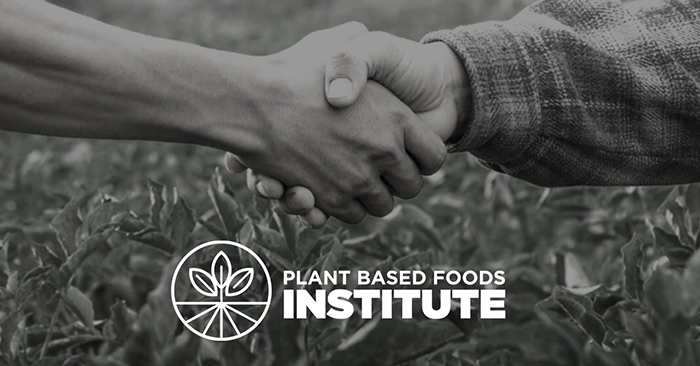PBFI To Support Supply Chain Actors And Regenerative Food Systems

Trade group The Plant Based Food Association (PBFA) has created a new nonprofit arm, dubbed the Plant Based Food Institute (PBFI), to address industry-related policies and effect change along every step in the industry’s value chain.
According to PBFA CEO Rachel Dreskin, who is also leading PBFI, the new organization will be a separate and independent entity that will exclusively focus on supply chain actors, while PBFA will serve the day-to-day needs of brands. Dreskin said she has worked with PBFA members over the past year to determine their needs.
“It’s very much [about] tapping into and working collaboratively with all the member companies and with the plant-based food industry at-large,” said Dreskin. “But it’s really looking at what the broader food systems [role in creating] change.”
With a stated mission to “drive transformation to a plant-based food system that benefits people, the planet, and animals,” PBFI has already launched its Domestic Sourcing Initiative. The program will work directly with farmers to help them transition to sustainable production methods for high-demand crops and connect them with PBFA members to create a “direct market outlet.”
That said, not all meat alternatives can be part of the PBFI. Dreskin stated that cell-cultivated meat and dairy products fall outside of the scope of the organization.
The institute will also implement pilot-scale regenerative projects to measure the environmental and economic impacts of these growing methods and explore their potential to be scaled. Dreskin, who is also a founding board member of agriculture-focused organization and certification program the Regenerative Organic Alliance, noted that while a regenerative certification program is not among the PBFI’s immediate priorities, the institute is “constantly looking into collaboration and partnership opportunities.”
“It’s been a major challenge in recent months with supply, network volatility, inflation and lack of reliability within networks,” said Dreskin. “We have a lot of interest and members of the association are saying ‘we want to have greater visibility on what’s going on in our supply networks’ and ‘we want to foster more sustainable production.’ Since we have relationships with farmers and farming communities we are able to bring these worlds together.”
PBFI will also advocate for loosening governmental restrictions on how plant-based brands are allowed to label finished products. State legislatures have increasingly tried to block the use of traditionally animal-based terminology on plant-based products.The PBFA has previously supported efforts spearheaded by two prominent plant-based brands including Tofurky’s fight with state legislatures around alternative meat labeling and Miyoko’s battle to call plant-based butter, butter.
Some of those efforts are already underway, Dreskin said. Earlier this month, the International Plant-Based Foods Working Group (IPBFWG), a cohort of eight international trade associations that was first assembled about a year ago and formalized its governance structure alongside the launch of PBFI. The group has identified global priorities within the industry and aims to share best practices to challenge labeling restrictions, raise and deploy funds through the institute, a 501C3 registered charity, provide a means for collaboration and “just operate more efficiently and strategically, together to advance the sector.”
“The plant-based food industry and community is very unique for a for-profit industry,” said Dreskin. “The industry is united by a common purpose and the vast majority of companies that are part of our membership are interested in leveraging the power of business to create positive change, impact the world, specifically within our food system.”



















